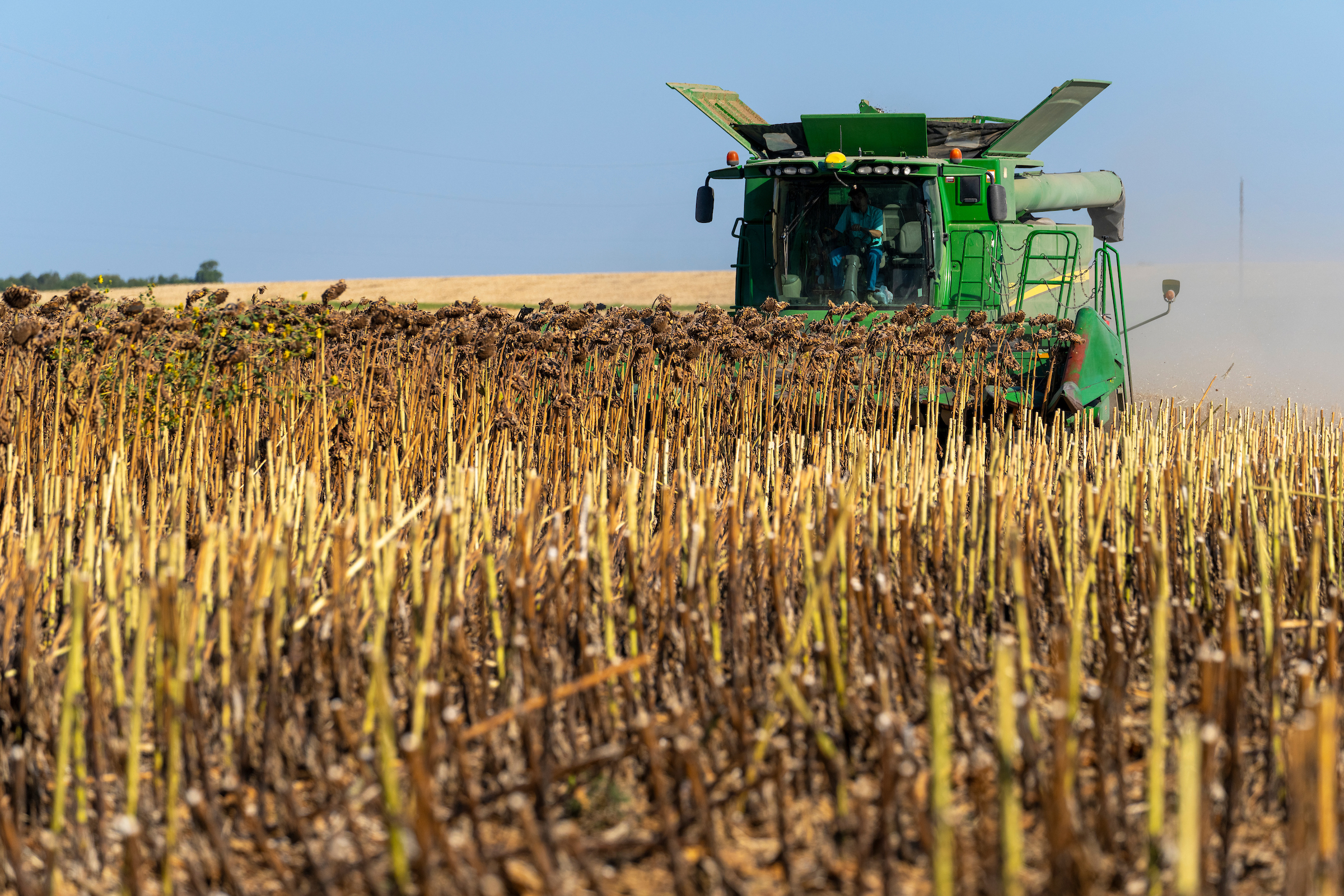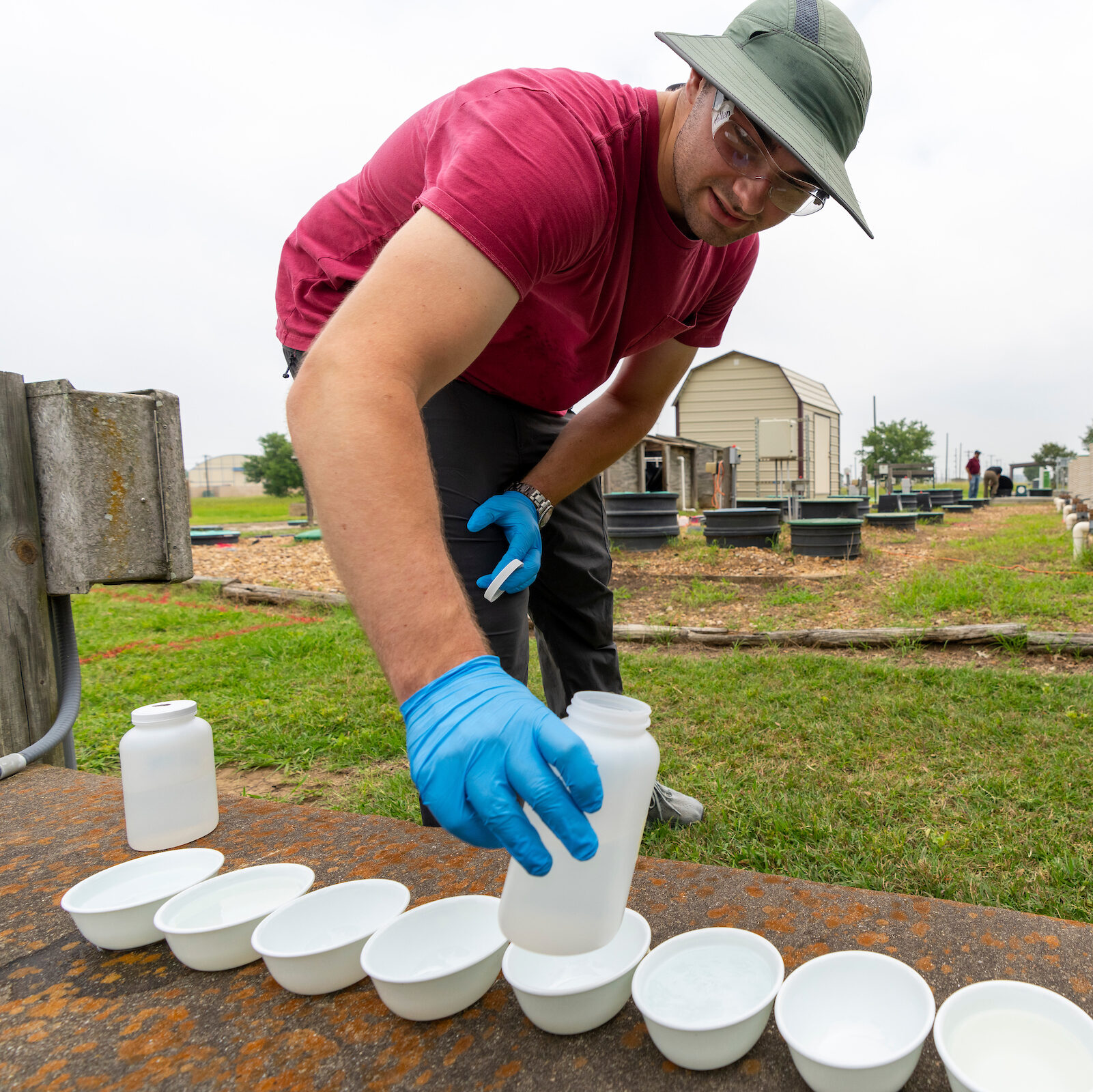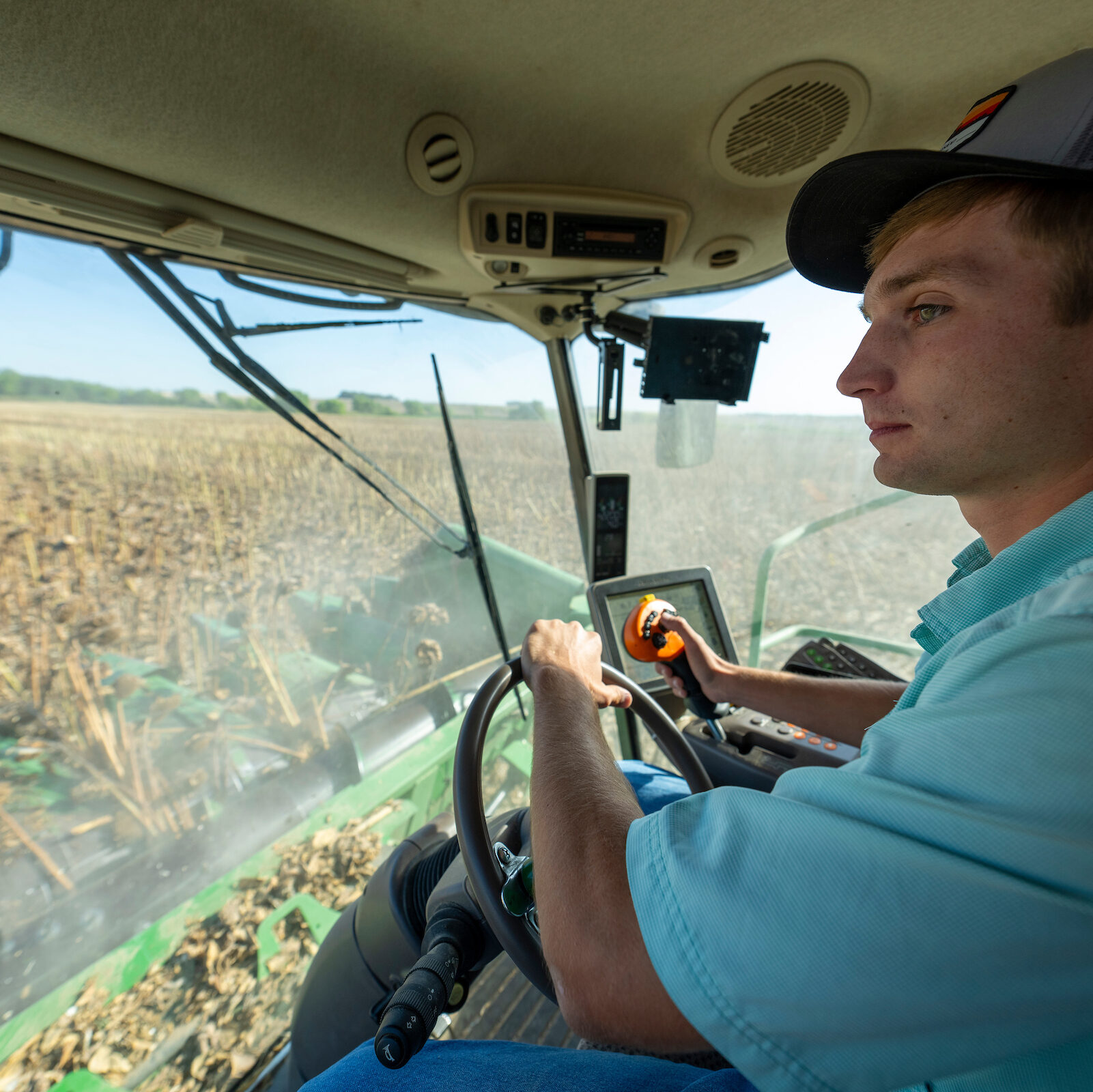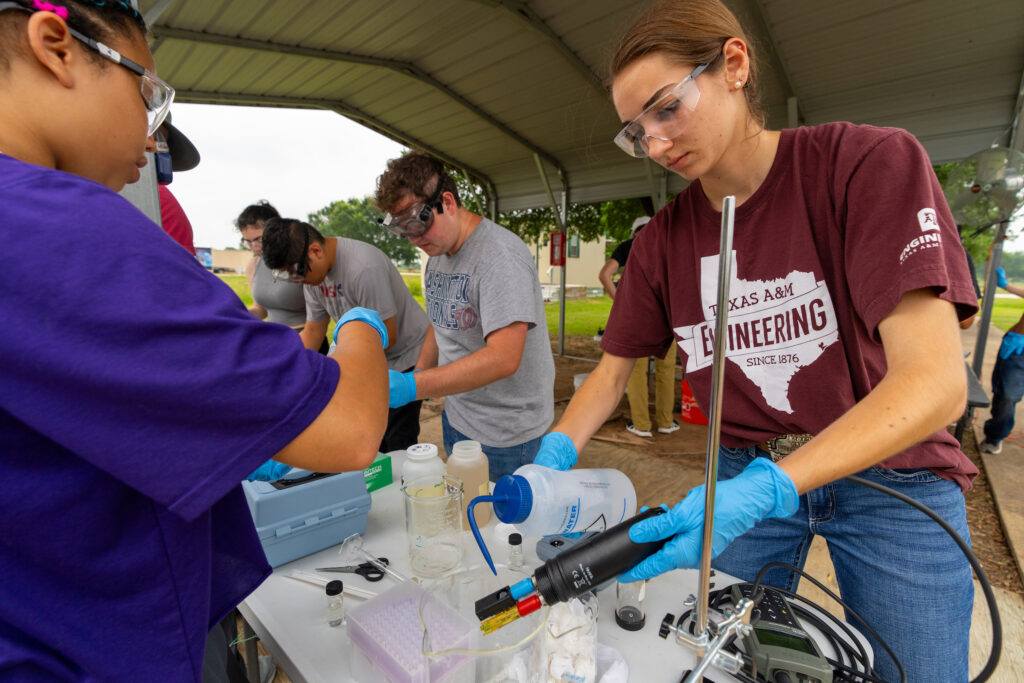
Graduate Degrees
Our undergraduate degrees prepare students to pursue careers in public and private sectors to meet the needs of the dynamic, global economy. The department places a high priority on graduate education and offers a wide variety of research topics. Our research programs combine leadership in traditional areas of biological and agricultural engineering with aggressive development of programs in emerging technologies.
Master’s Degrees

M.S. Biological and Agricultural Engineering
Designed to develop new understanding through research and creativity, this program offers students the option to pursue a thesis or non-thesis degree. Students can specialize in subject matter related to environmental and natural resources, food engineering, bioprocess engineering, biomaterials science, machine and energy systems, systems analysis as well as food, feed and fiber processing. The non-thesis option is offered in conjunction with the College of Engineering.

M.S. Agricultural Systems Management
Designed to develop new understanding through research and creativity, this program offers students the option to pursue a thesis or non-thesis degree. Students can specialize in subject matter related to environmental and natural resources, machine and energy systems, systems analysis as well as food, feed and fiber processing. Students are expected to plan, conduct and analyze a comprehensive research project, and to report the findings in a thesis. This program is also approved for delivery via asynchronous distance education technology.

M.E. Biological and Agricultural Engineering
Designed to develop new understanding through professional development, problem solving and creativity, this degree offers specialization in subject matter related to environmental and natural resources, food engineering, bioprocess engineering, biomaterials science, machine and energy systems, systems analysis as well as food, feed, and fiber processing. Students are expected to complete a professional internship and report their findings in a professional paper. This program is also approved for delivery via asynchronous distance education technology.

Ph.D. Biological and Agricultural Engineering
The Department of Biological and Agricultural Engineering’s Doctorate of Philosophy degree is designed to develop new understanding through research and creativity. Areas of specialization within the program include subject matter related to environmental and natural resources, food engineering, bioprocess engineering, biomaterials science, machine and energy systems, and systems analysis along with food, feed, and fiber processing.
Graduate Funding Opportunities
A number of fellowship and scholarship opportunities are available to graduate students. Most competitive funding opportunities provide a nonresident tuition waiver. Check with the department graduate office and the Graduate & Professional School at Texas A&M University for details. Students holding fellowships should check the current graduate catalog to determine registration requirements. Students holding graduate assistantships or fellowships should verify registration requirements with the Department of Biological and Agricultural Engineering Graduate Office.
Application Deadlines
International
| Fall Deadline | Spring Deadline | Summer Deadline |
|---|---|---|
| July 1 | November 1 | April 1 |
Domestic
| Fall Deadline | Spring Deadline | Summer Deadline |
|---|---|---|
| July 15 | December 1 | May 1 |
Distance Education
We offer a non-thesis Master of Engineering graduate degree in Biological and Agricultural Engineering with emphasis in Food Engineering and a non-thesis Master of Science degree in Agricultural Systems Management with focus in Food Process Technology completely online. We have delivered online education since 2012, so we have plenty of experience helping students complete our program successfully.
Contact a Graduate Advisor
Ashlea Schroeder
Senior Academic Advisor - Undergraduate and Graduate Advisor
